The reality of growing up as a young woman in the Gaza Strip
- Text by Cristian Angeloni

When most people think of the Gaza strip, they imagine a place torn and wrecked by violence. However, photographer and journalist Monique Jaques has decided to turn her lenses away from the conflict to find examples of strength and resilience in Gazan women and girls.
Her award-winning photo book, Gaza Girls: Growing Up in the Gaza Strip, looks at the difficult and constrained reality of young girls in Gaza. Despite their existence being defined by geographical and political boundaries, Jaques shifts the focus towards those instants where the girls were free to laugh and daydream, providing a different narrative to the one that outsiders are accustomed to. The book is currently fundraising on Kickstarter, and hopes to be released in early 2018.
Told from a completely Palestinian perspective, Gaza Girls follows the journey of young women as they attempt to defy adversity and claim back the happiness that was taken away from their daily life. We caught up with Monique to find out more about how she put the project together, and the lessons she learned along the way.
What drew you to Gaza in the first place?
I went to Gaza to cover the war, like every other journalist, but I stayed because I met the most amazing group of girls and young women who were so inspiring. They were focused on making positive changes in their lives and the lives of others. I started documenting them and then expanded the work to tell more stories of the women. Often we see Gaza through a dimensional lens of violence and conflict. Stories about quieter moments like these are often overlooked, though they offer a powerful look into a world unseen by many. This work amplifies the everyday moments of joy and hope.
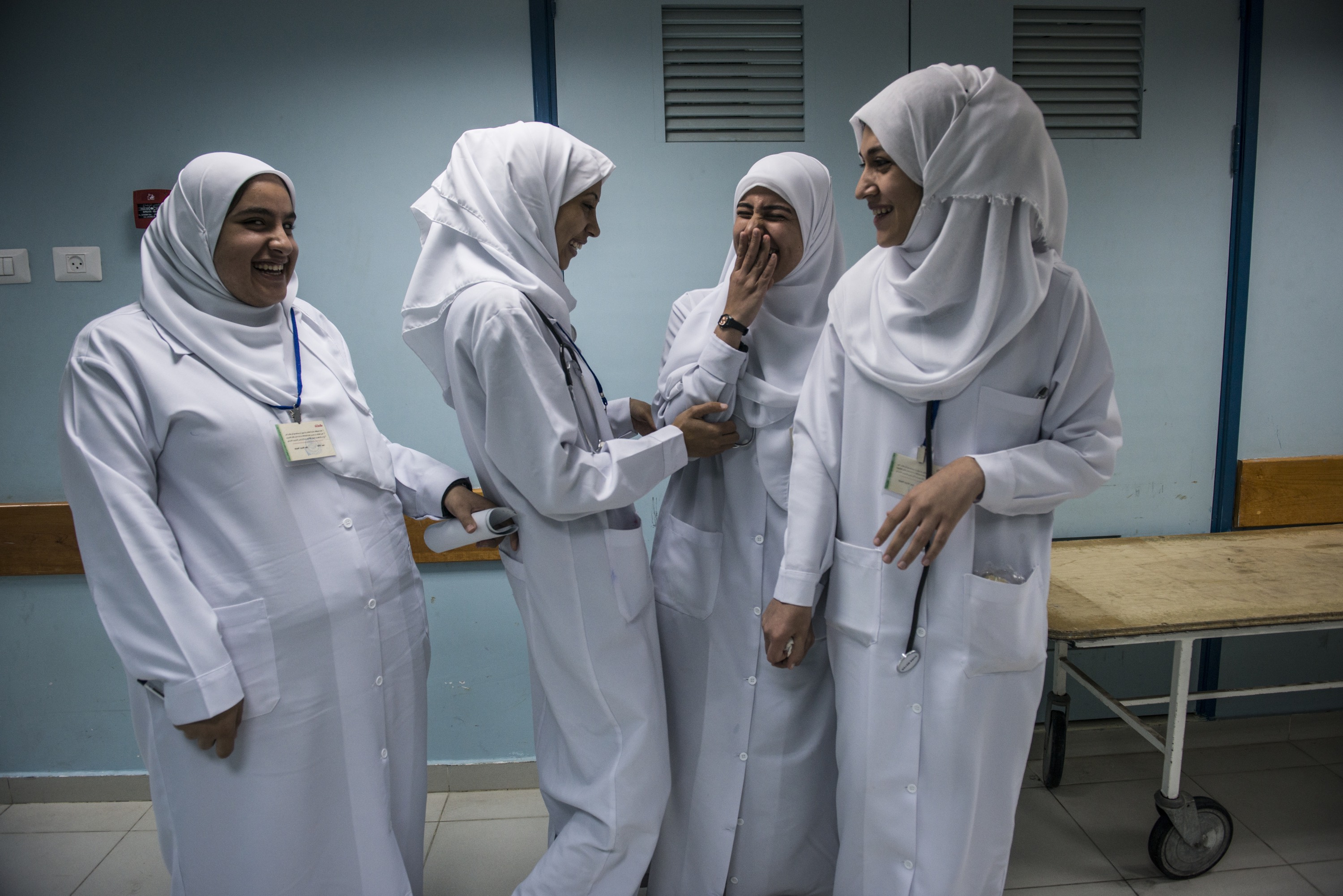
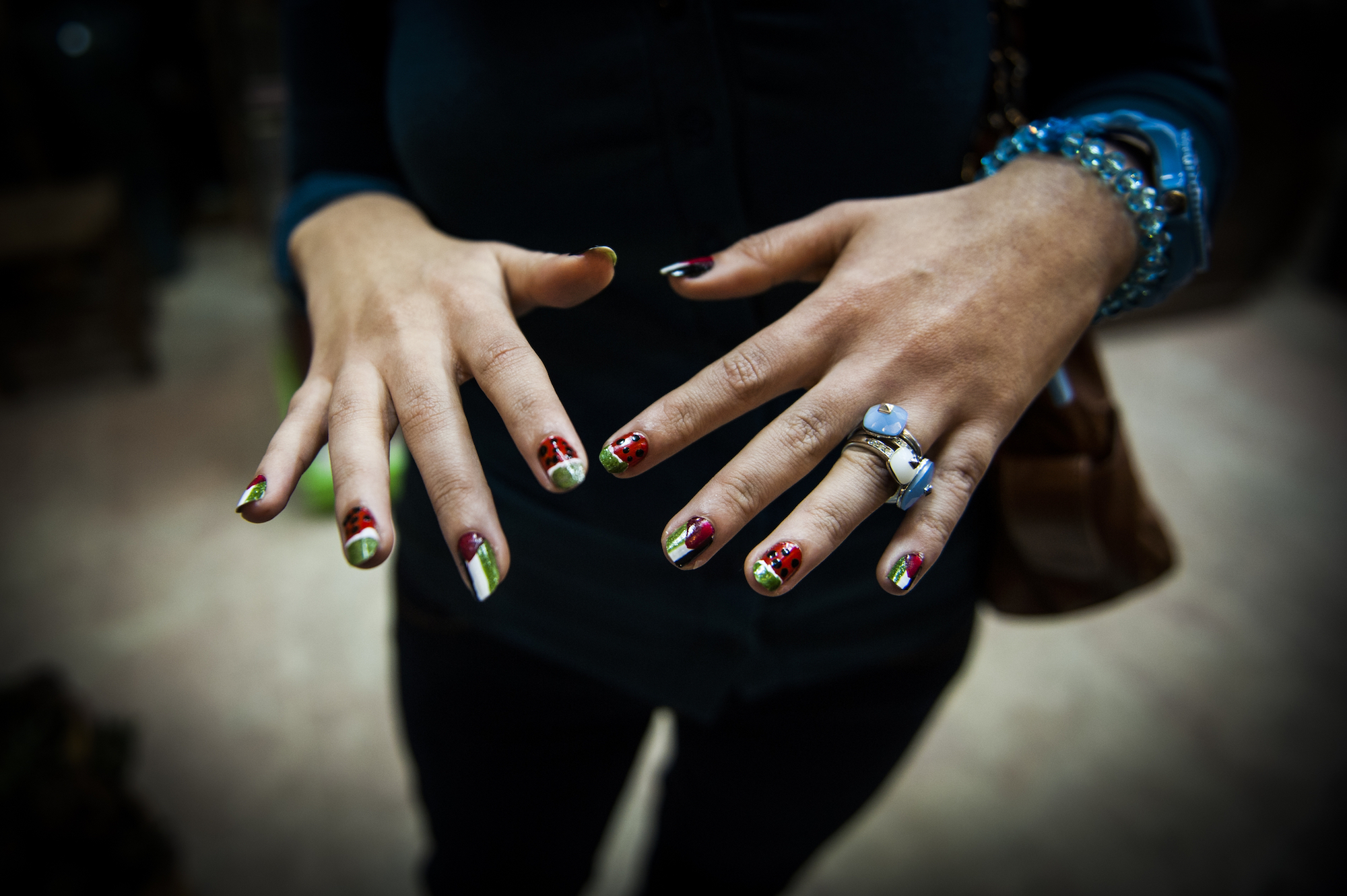
Are the challenges facing young women in Gaza universal? Or are there specific barriers and struggles many there need to overcome?
Many of the challenges are universal. But what I’m trying to convey with this book is that growing up in Gaza is much more difficult. When you’re a young girl in Gaza, your existence is defined by its boundaries — literal and metaphorical, defined by both regional and cultural politics. Families are tight-knit and watchful over their daughters. Privacy and mobility are both scarce. Many women say that in a place as small as Gaza, it is impossible to be truly free. Yet, there are moments of joy found in laughs at school, shared secrets with friends and moments alone to dream. Like many peers around the world, these girls are figuring out who they are in a world built by grown-ups. Navigating girlhood is universal, even if the circumstances are not.
I see so much of myself in the girls, I see similar hopes and dreams. When I was young I dreamed endlessly of travelling and exploring the world, the girls in Gaza have the same dreams – except they can’t leave the strip.
How has the place changed over the years you have spent there?
Gaza has gotten worse, the lack of electricity is worse now than ever. Many of the girls there say that it’s the worst they have ever known aside from 2012 and 2014 when there was active conflict.
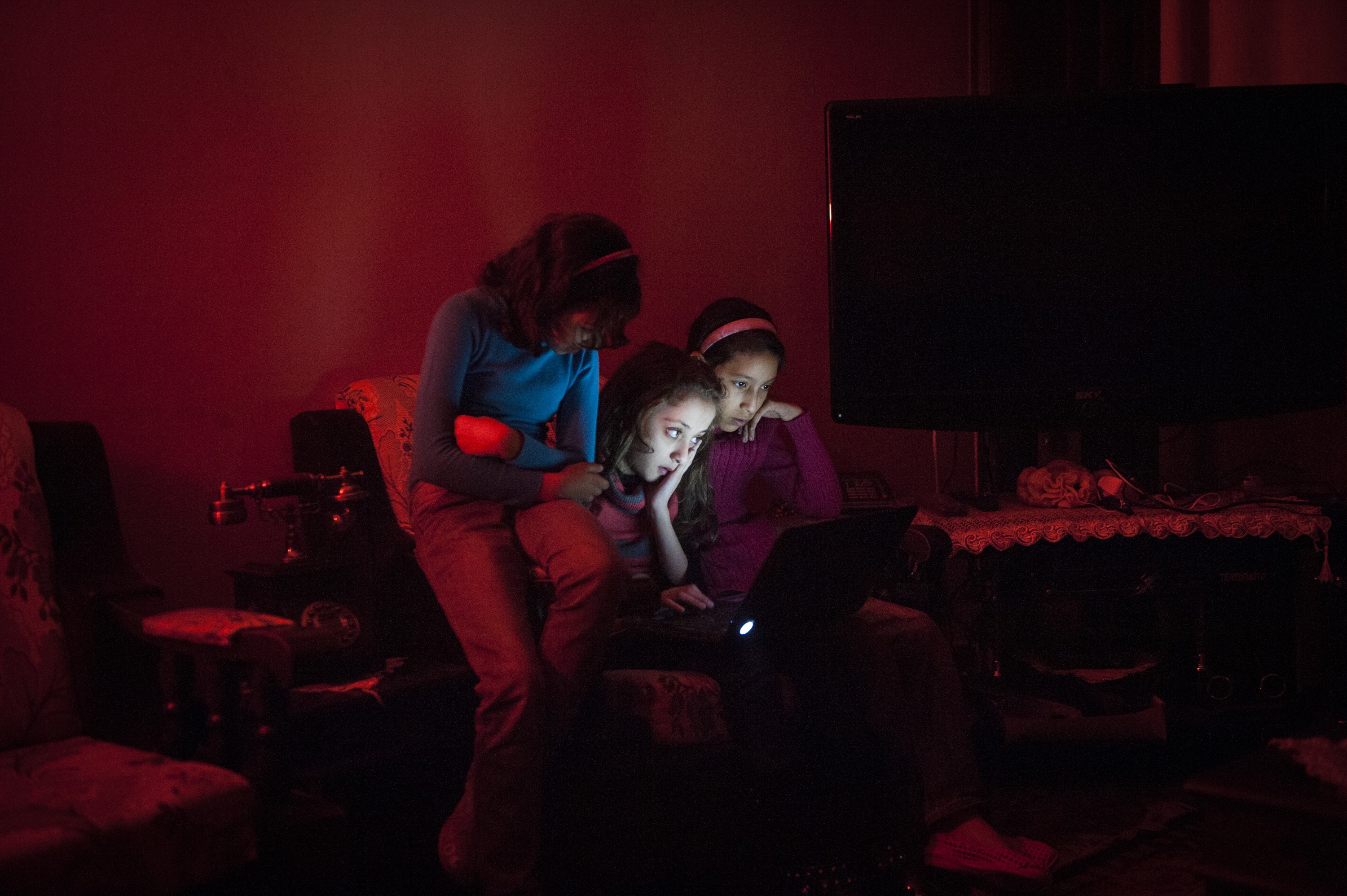
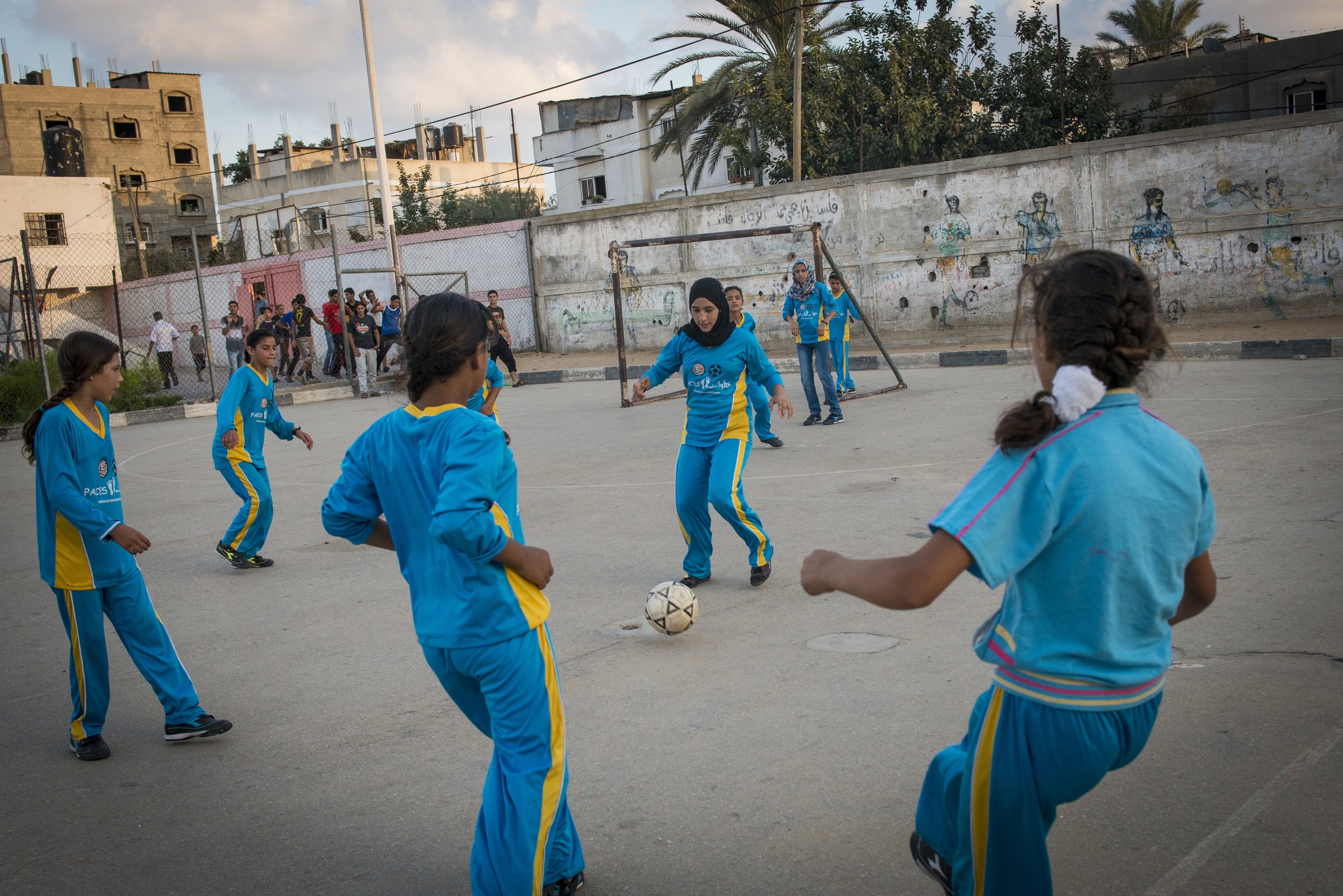
What’s your relationship like with the young women you’ve been shooting? Did they collaborate with you on the book and on your work?
The most important thing everyone knows is that every word written in this book, including the forward and introduction, is by Palestinian women in their own words. It’s the stories the girls chose to tell and the words they used. My only input in the book is the images, which I photographed over five years in the Gaza Strip.
What have you learnt about womanhood from your time in Gaza?
I learned so much about resilience and the special kind of resilience that women have to have to survive and thrive. Hope is so important as well. I think the girls there, who despite appalling conditions, continue to hope for better days. It’s so inspiring and humbling. Every girl I’ve met is so strong and resilient in the most amazing way. I’m completely in awe of these women, as I hope are the readers of the book.
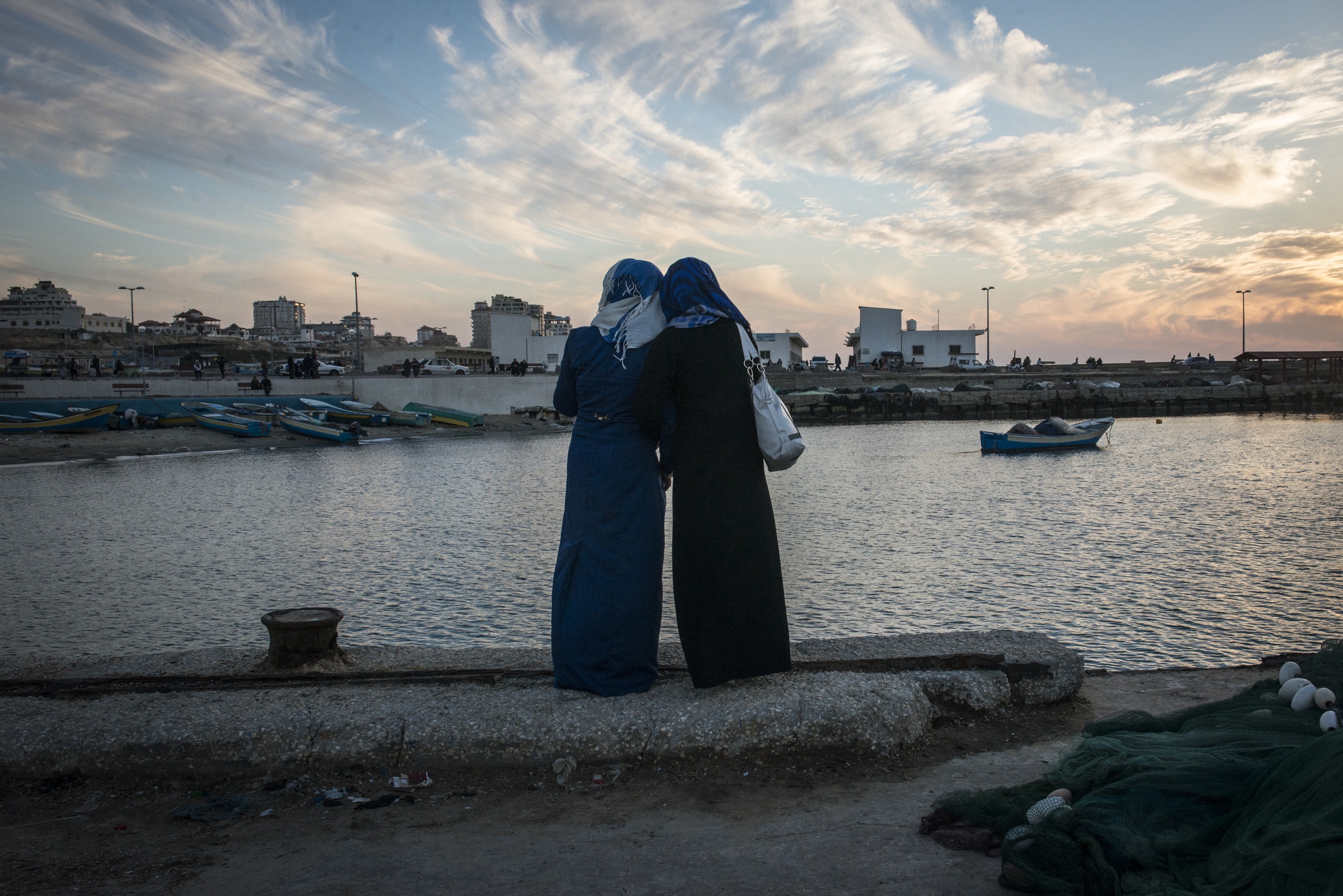
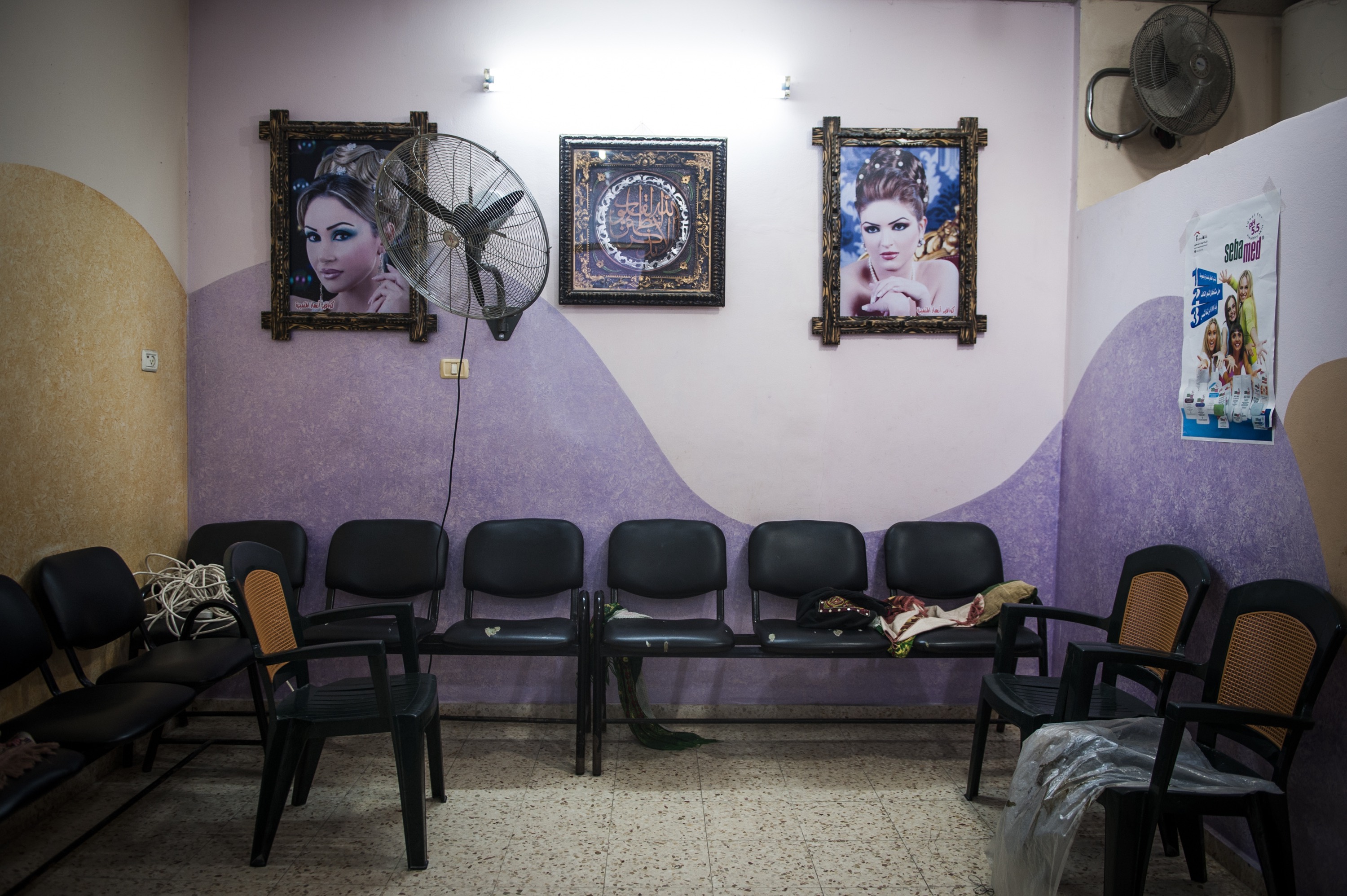
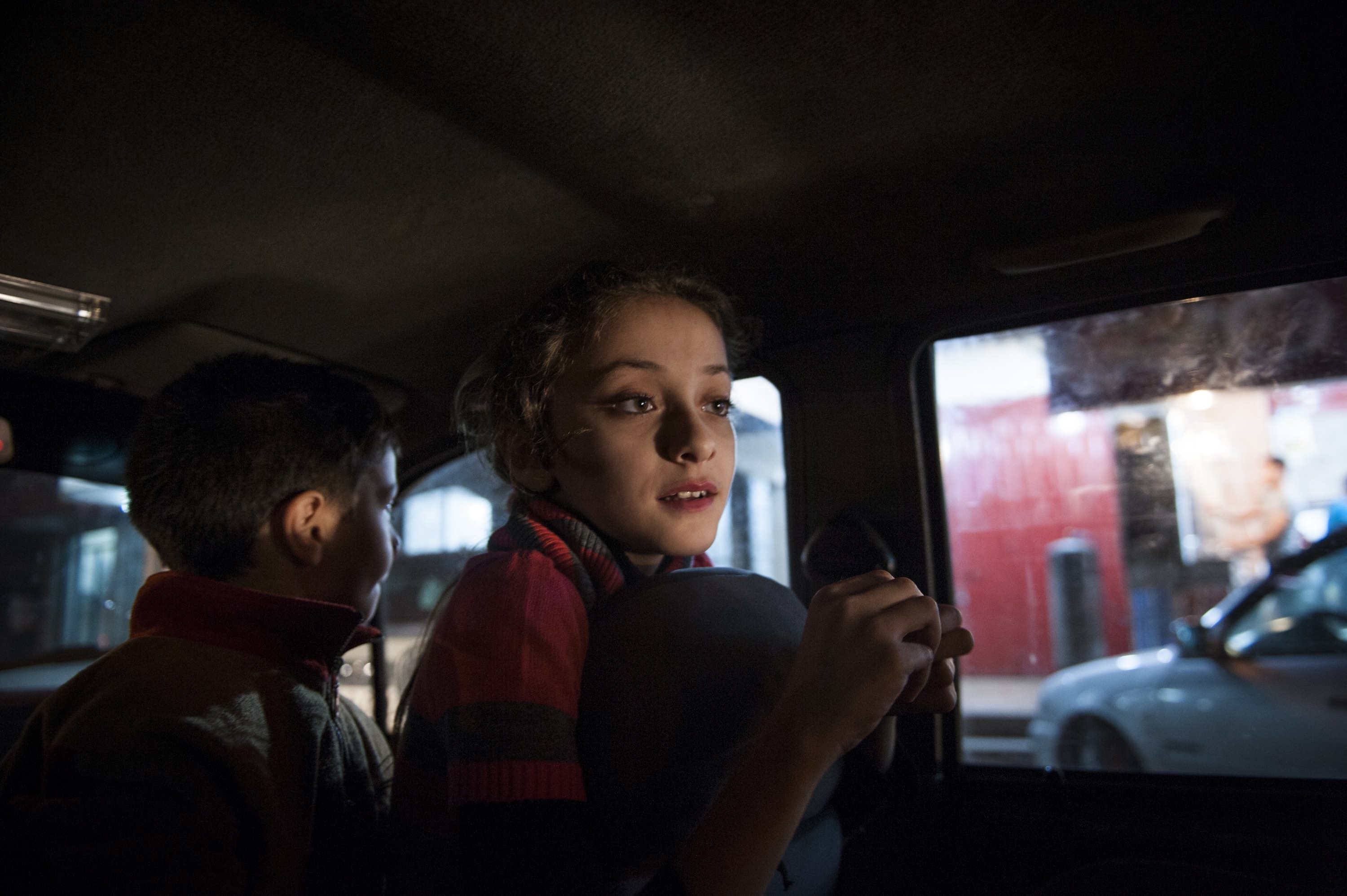
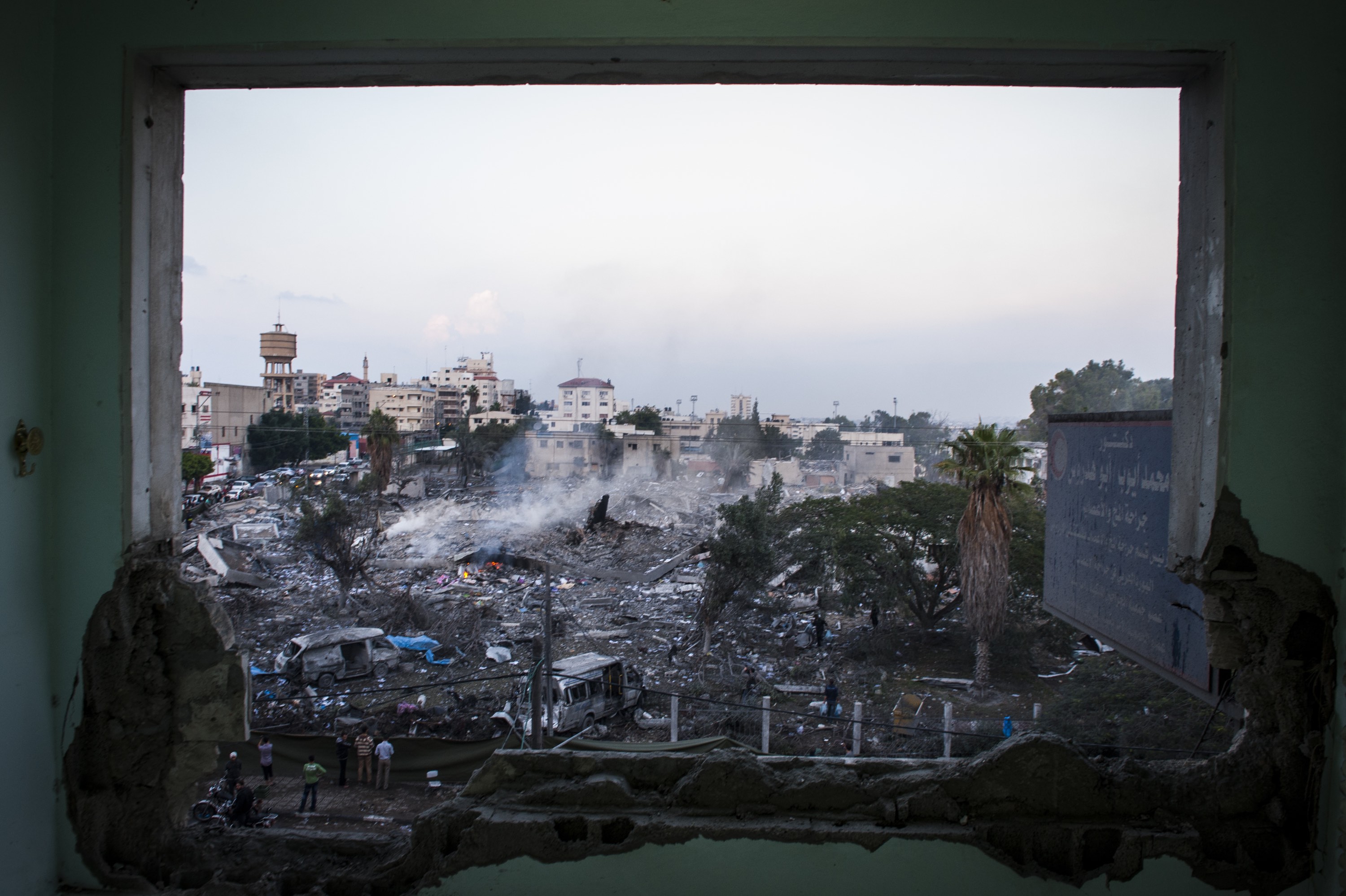
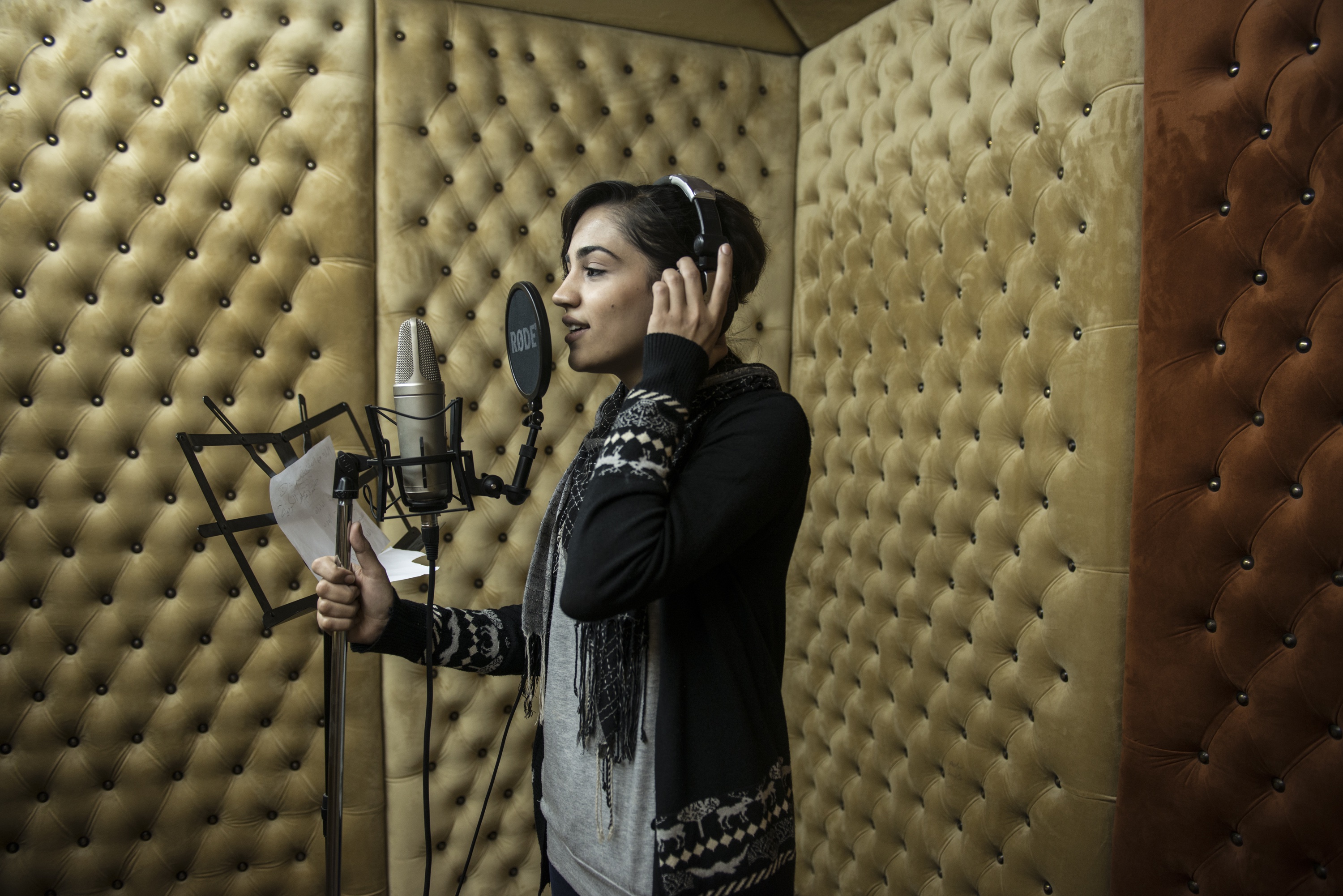
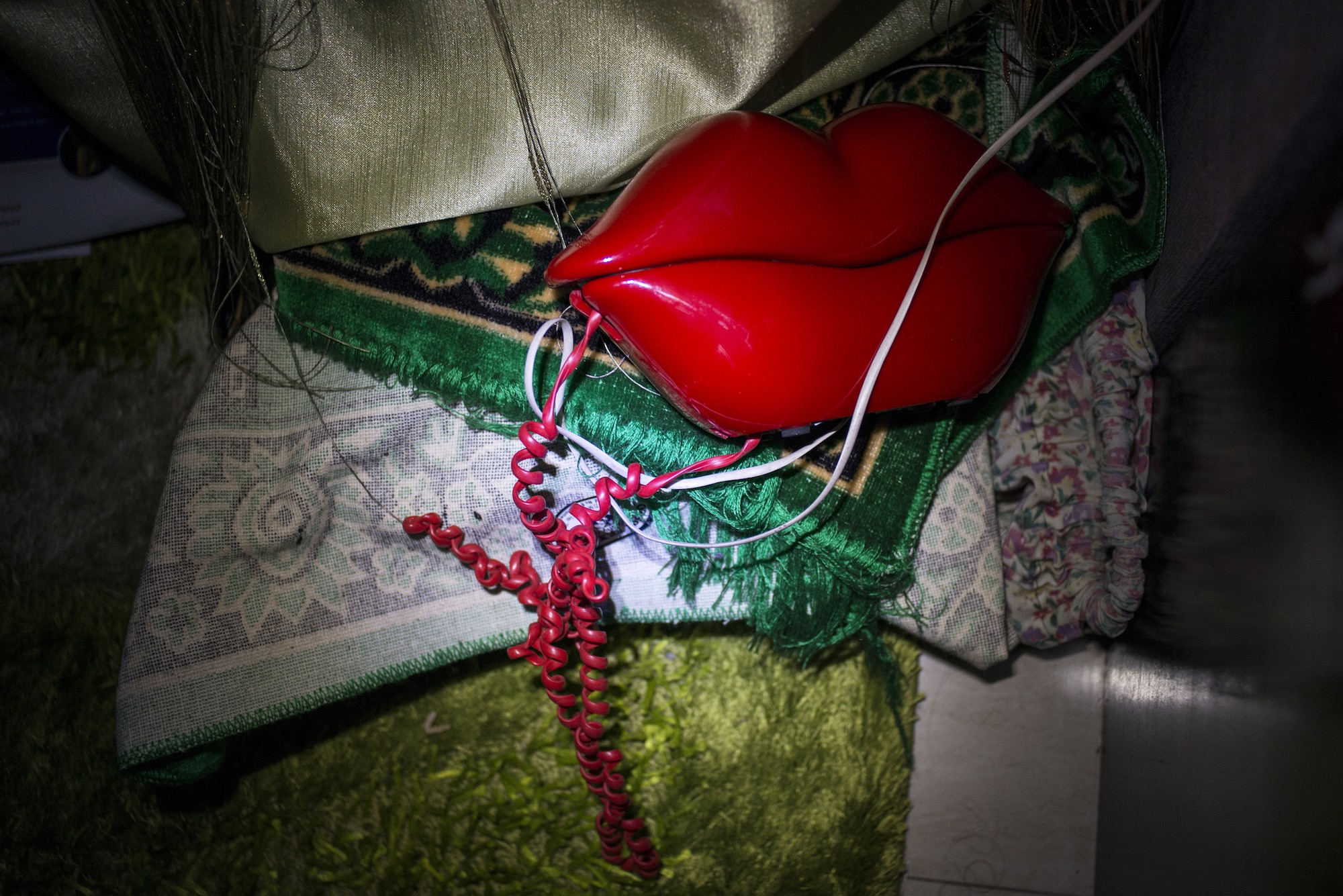
Gaza Girls: Growing Up in the Gaza Strip is currently fundraising on Kickstarter and will be released in early 2018.
Enjoyed this article? Like Huck on Facebook or follow us on Twitter.
You might like

“Humanity’s big threat is our disconnect from nature”: Craig Richards and Chris Levine in conversation
Lighting up — With Houghton Festival collaborating with artist Chris Levine in its most recent edition, we sat down with the light artist and the festival’s creative director Craig Richards to chat about their new installations, and the role of art and music in tumultuous times.
Written by: Isaac Muk

Throwback portraits of the UK’s first punks
Punks 1978-1980 — While working as a photographer in the army, Wayne “Spike” Large would moonlight as a punk on the weekends. His new photobook revisits the characters that he captured from the genre’s heyday.
Written by: Miss Rosen

Meet Lady Pink, the ‘First Lady’ of graffiti
Miss Subway NYC — As a leading writer and artist in a man’s world, Sandra Fabara has long been a trailblazer for girls in underground art. Now, her new show touches on her legacy, while looking to the future.
Written by: Isaac Muk

Will internet age verification actually work?
VPN Summer — With the Online Safety Act coming into force over the weekend, the UK woke up to find pornography, but also any content deemed “harmful” hidden behind an ID wall. But young people are far too tech savvy to be deterred, explains newsletter columnist Emma Garland, who also warns of the dangers of mass data harvesting.
Written by: Emma Garland

Love and rage at the record shattering London Trans+ Pride 2025
Dismantle the cis-tem — With over 100,000 attendees, the Saturday march was the largest trans pride event ever in world history. Cheer Up Luv’s Eliza Hatch captured the action, and recounts its powerful energy.
Written by: Eliza Hatch / @cheerupluv

Inside the fight against Japan’s ‘nuisance streamer’ epidemic
The business of brain rot — Taking advantage of a culture of tolerance and unwritten social rules, streamers searching for virality are increasingly targeting the far east country with outlandish stunts and pranks. As outrage builds towards foreign creators, ‘responsible streamers’ are speaking up.
Written by: Sophie Holloway

